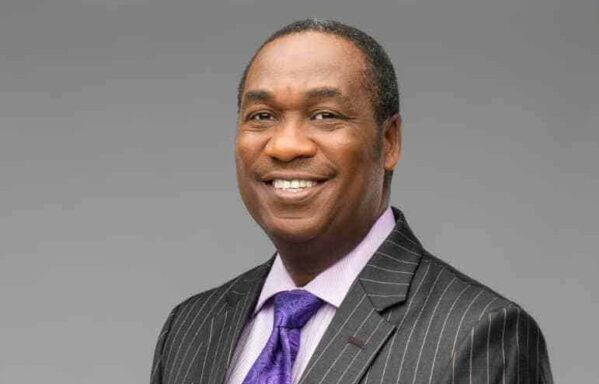Lagos State Deputy Governor, Obafemi Hamzat allegedly swore an oath of allegiance to the United States renouncing his Nigerian citizenship.
According to Olubusayo Fasidi, a U.S. immigration lawyer, who testified before the Lagos State Election Petition Tribunal, Mr Hamzat had submitted certain forms requesting naturalization.
This development has sparked controversy and drawn attention to the issue of dual citizenship and its implications for public officials in Nigeria.
Olumide Ayeni (SAN), the counsel representing the petitioner, and Labour Party Guber candidate, Gbadebo Rhodes-Vivour presented Olubusayo Fasidi as a witness before the tribunal.
The witness testified that Mr Hamzat, the third respondent in the petition, had submitted Forms 8CFR/337 and N400 for naturalization.
These documents were tendered before the tribunal by Mr Ayeni, although objections were raised by the respondents' counsels, who reserved their reasons for their final written addresses.
Below are some of the documents presented before the election tribunal:



During cross-examination by Eric Ogiegor, counsel to the Independent National Electoral Commission (INEC), the witness acknowledged that an individual could hold dual citizenship.
However, she clarified that her role was to explain U.S. law and was not specifically aware of Nigeria's provisions regarding dual citizenship as stated in the 1999 Constitution.
When Bode Olanipekun (SAN), the counsel representing Mr Hamzat and Governor Babajide Sanwo-Olu, asked the witness to disclose the jurisdiction and date of Mr Hamzat's naturalization application, she invoked the Privacy Act of 1974, stating that such information is protected.
Norris Quakers, the counsel for the All Progressives Congress (APC), inquired if the witness was aware that Mr Hamzat had disclosed his American citizenship, to which she affirmed. Mr Quakers argued that the witness addressed matters of law rather than facts.
Justice Arum Ashom, leading the tribunal alongside Justice Mikail Abdullahi and Justice I.P. Braimoh, admitted all the documents into evidence and instructed the respondents' counsels to include their objections in their final written addresses.
The tribunal adjourned the case until June 26 to continue the hearing.
Earlier, Mr Ayeni presented result sheets from polling units in nine local government areas, highlighting discrepancies against INEC's Form EC 40A.
Objections to the admissibility of Form EC 40A were raised by the counsels representing INEC, Sanwo-Olu, Hamzat, and the APC, with their reasons to be provided in the final written addresses.




















